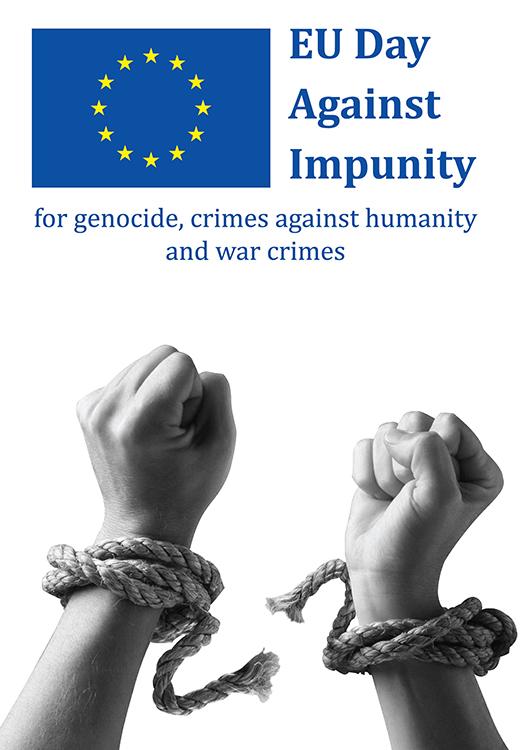EU Day Against Impunity for Genocide, Crimes Against Humanity and War Crimes

The International Criminal Court’s 2023 budget is approximately 170 million euro. Put another way, as we embark on the eighth anniversary of the EU Day Against Impunity for Genocide, Crimes Against Humanity and War Crimes, the very court designed to tackle humanity’s most egregious crimes, possesses a budget that essentially replicates the value of the most expensive penthouse in London. With China, India, and the U.S. not party to the Rome Statute (three of seventy nations), more than half the world’s population is, at least theoretically, operating under different international obligations. In classic NIMBY fashion, only fifteen nations, most recently Spain, have agreed to even enforce sentences imposed by the Court.
Since 2002, when the Rome Statute fully went into effect, the ICC has merely convicted ten of the world’s worst individuals. In fact, there are more people on the run, acquitted or have seen their cases vacated, than there are actual convictions. And until quite recently, and thus for far too long, the Court’s proceedings seemed to implicitly suggest that the world’s worst criminals only emanated from Africa. Facts like these are disheartening. Surely, the ICC has not lived up to its lofty aspirations or expectations. However, perspective is needed. International law is in its infancy. For example, the ICC’s ability to prosecute the crime of aggression was only formally activated five years ago. With our innate tendency to trend towards negativity bias, it is easy to criticize the pastToday the war in Ukraine is being fought, in part, with drones, Telegram, and Javelins; whereas, forty years ago, those words meant a sound, an antiquated message, and a spear. Though far more challenging for humans to envision the future, we must think about international law in terms of possibilities. For this reason, it is imperative that Ukraine formally sign the Rome Statute.
Thinking ahead, every member state of the European Union has also formally ratified the Rome Statute. To eventually be admitted into the EU, Ukraine will be required to follow suit. Nevertheless, to date, Ukraine’s hesitancy to formally ratify the Statute is complicated; but is also a familiar refrain to this United States’ author’s ears. The crux of the argument is the belief that the ICC will prosecute Ukrainian military personnel. This misguided sentiment fails to consider Article 1 of the Rome Statute, “the Court shall be complementary to national criminal jurisdictions.” Likewise, Article 17 addresses that State jurisdiction reigns unless “the State is unwilling or unable to genuinely carry out the investigation or prosecution.” Meanwhile, Article 20 articulates that the same conduct cannot be prosecuted by the ICC unless the State’s proceedings were designed “for the purpose of shielding the person concerned…or otherwise were not conducted independently and impartially.” In other words, the ICC was intended to respect State sovereignty, not to be a court of judicial review. The entire system is founded upon voluntary obligations, including extradition. Opting-in, while believing in the vision of a world without impunity, is the Statute’s strength.
By formally ratifying the Rome Statute, Ukraine will then have a voice, from selecting judges to helping legislate the crime of aggression. In turn, although Ukraine has already made strides with such, the State could harmonize and conform its national laws to that of the ICC, creating positive complementarity, which, in turn, would only further update Ukraine’s legal system. The ICC was also uniquely designed to give victims’ active participation, that too should act as an incentive. Therefore, on this eighth anniversary of EU Day Against Impunity there is still much to desire moving forward, much to actually admire looking back, and much Ukraine can further do to strengthen its forthcoming entry into the EU.
Author: Damian Cohen, UNICRI Master of Laws (LL.M.) in Transnational Crime and Justice.
Photo: European Union Agency for Criminal Justice Cooperation

